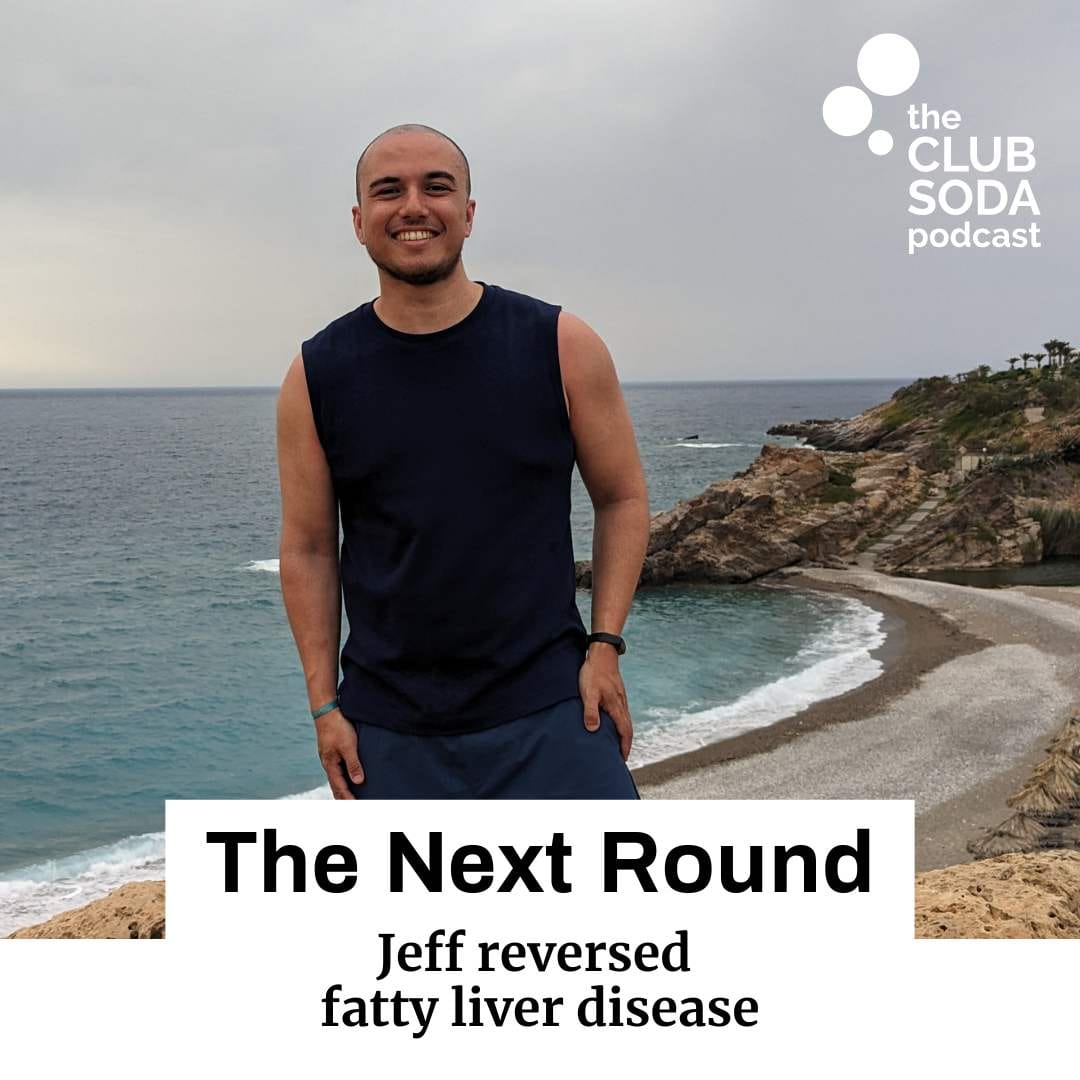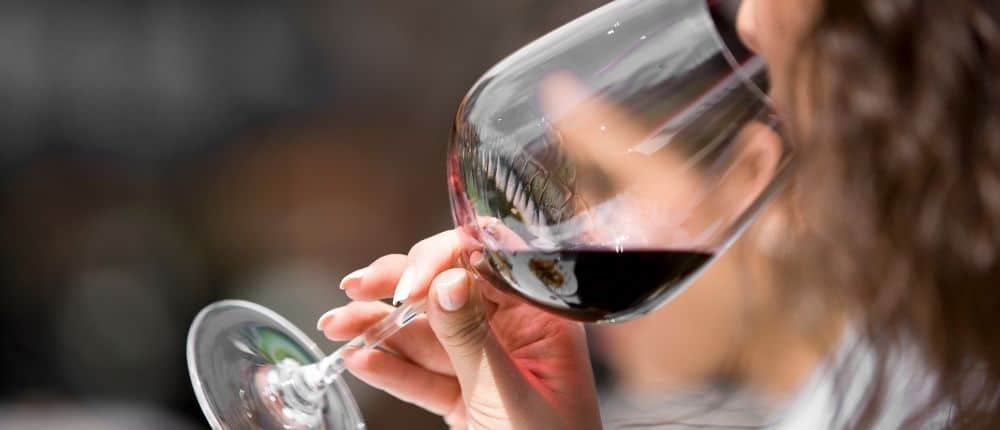
This website uses cookies to improve your experience. We'll assume you're ok with this, but you can opt-out if you wish. Read More
The Next Round: What happens after you change your drinking?

In my experience supporting people on Club Soda’s courses, drinking wine is a hard habit for many to shake.
Beer and spirits are more straightforward to cut down than wine. And they are certainly easier to swap out with alcohol-free alternatives if you take a break or quit.
But wine is uniquely tricky, especially if you want to cut back on your alcohol consumption.
I think there are ten important reasons why wine is hard to moderate. The first five reasons actually have to do with the wine itself. The other reasons are about your experience of drinking wine. Some of these factors are more easily controlled than others, and some you won’t be able to change at all.
But understanding why wine is causing you problems will be the first step to change your relationship with it. Let’s dive in.
Here are five key reasons why it’s hard to cut down when you’re drinking wine. These factors are unique to wine itself:
Here are some more reasons why it’s difficult to moderate when you’re drinking wine. These are to do with you, your experiences and your habits. They may not be true for you, of course. But they are observations about typical wine drinking behaviour:
If you intend to continue drinking wine but want to cut back, you’ll need some clear strategies. Hoping for change isn’t enough. You’ll need practical tactics to drink differently.
In Club Soda’s short course, Rethinking Your Wine Drinking, you’ll discover how to make concrete plans to reshape your wine habits. In the long term, you may find that moderation works for you. Or you might decide a better option is to take an extended break to reset. Or you could stop drinking completely.
But if you want to cut back on your wine drinking, here are some additional approaches that might work for you.
Begin by paying attention to the situations in which you drink more wine than you want to. Notice your triggers for drinking. For example, if you can’t moderate at home but find it easy to stick to one glass in a restaurant, decide to drink wine only if you are eating out. Or perhaps there is a group of friends you always overdrink with. Switching to brunch rather than evening drinks to maintain your connection, but without alcohol in the picture.
Alcohol-free wines have had a poor reputation historically, but there are many excellent options available now, and the category is improving all the time. Some alcohol-free wines are widely available in supermarkets, but it is worth seeking out smaller producers and premium brands if you want a high-quality wine-drinking experience. Generally, sparkling and white wines are a safer bet than dealcoholised reds. But remember to judge each drink on its own merits. Wine is a huge family of drinks with a very wide range of taste profiles, so “it doesn’t taste like wine” might not be a fair criticism.
You will also want to try other types of alcohol-free drinks. Many former wine drinkers switch to alcohol-free beers when they cut down or stop drinking. And there is huge variety in the alcohol-free wine space, with drinks that will offer you a balance of sweetness, acidity, bitterness and astringency. Cold-brewed sparkling teas can also offer tannins, and delicate flavours to match the complexity of grape varietals.
But if you feel any resistance to the idea of switching away from wine, examine whether the identity of being a wine drinker is restricting your choices. If wine culture has become a cult, it’s time to break free. Whatever reasons you have to keep drinking wine, imagine for a moment that none of those reasons are true. It’s just a thought experiment. And you will reach your own conclusions. But it could lead to lasting change.
This website uses cookies to improve your experience. We'll assume you're ok with this, but you can opt-out if you wish. Read More
| Name | Domain | Purpose | Expiry | Type |
|---|---|---|---|---|
| wpl_user_preference | joinclubsoda.com | WP GDPR Cookie Consent Preferences. | 1 year | HTTP |
| PHPSESSID | www.tickettailor.com | PHP generic session cookie. | 55 years | HTTP |
| AWSALB | www.tickettailor.com | Amazon Web Services Load Balancer cookie. | 7 days | HTTP |
| YSC | youtube.com | YouTube session cookie. | 55 years | HTTP |
| Name | Domain | Purpose | Expiry | Type |
|---|---|---|---|---|
| VISITOR_INFO1_LIVE | youtube.com | YouTube cookie. | 6 months | HTTP |
| Name | Domain | Purpose | Expiry | Type |
|---|---|---|---|---|
| _ga | joinclubsoda.com | Google Universal Analytics long-time unique user tracking identifier. | 2 years | HTTP |
| sbjs_migrations | joinclubsoda.com | Sourcebuster tracking cookie | 55 years | HTTP |
| sbjs_current_add | joinclubsoda.com | Sourcebuster tracking cookie | 55 years | HTTP |
| sbjs_first_add | joinclubsoda.com | Sourcebuster tracking cookie | 55 years | HTTP |
| sbjs_current | joinclubsoda.com | Sourcebuster tracking cookie | 55 years | HTTP |
| sbjs_first | joinclubsoda.com | Sourcebuster tracking cookie | 55 years | HTTP |
| sbjs_udata | joinclubsoda.com | Sourcebuster tracking cookie | 55 years | HTTP |
| sbjs_session | joinclubsoda.com | SourceBuster Tracking session | Session | HTTP |
| Name | Domain | Purpose | Expiry | Type |
|---|---|---|---|---|
| mailchimp_landing_site | joinclubsoda.com | Mailchimp functional cookie | 28 days | HTTP |
| __cf_bm | tickettailor.com | Generic CloudFlare functional cookie. | Session | HTTP |
| NID | google.com | Google unique id for preferences. | 6 months | HTTP |
| Name | Domain | Purpose | Expiry | Type |
|---|---|---|---|---|
| _ga_10XZMT03ZM | joinclubsoda.com | --- | 2 years | --- |
| AWSALBCORS | www.tickettailor.com | --- | 7 days | --- |
| cf_clearance | tickettailor.com | --- | 1 year | --- |
| VISITOR_PRIVACY_METADATA | youtube.com | --- | 6 months | --- |
Join Club Soda for 10% off your first order of drinks for UK delivery. Plus get our latest news and special offers for members to choose better drinks, change your drinking and connect with others.
If you get an error message with this form, you can also sign up at eepurl.com/dl5hPn